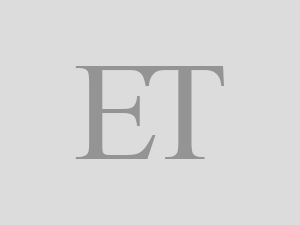Markets and world leaders are all bracing for next week, when President Donald Trump has planned a rollout of tariffs dubbed “Liberation Day” on April 2. He’s already imposed some levies on Canada, whose economic growth came to a halt in February after a solid start to the year.
Here are some of the charts that appeared on Bloomberg this week on the latest developments in the global economy, markets and geopolitics:
US & Canada
 Bloomberg
BloombergInflation-adjusted consumer spending edged up 0.1%, on the low end of economists’ estimates, after a slump January that analysts mostly blamed on bad weather. The so-called core personal consumption expenditures price index, which excludes food and energy items, was up 2.8% from last year, remaining stubbornly above the Federal Reserve’s 2% target.
 Bloomberg
BloombergTrump appeared to invent a new weapon of economic statecraft on Monday by threatening what he dubbed “secondary tariffs” on countries that buy oil from Venezuela to choke off its oil trade with other nations. The novel approach adds to a growing list of weapons that Trump has been eager to deploy as part of a push to use America’s economic clout as leverage in achieving its foreign and domestic policy goals.
 Bloomberg
BloombergThe stock market volatility set off by concerns over Trump’s rapidly shifting trade war threatens one of the primary growth engines of the US economy: spending by high-income earners.
 Bloomberg
BloombergTrump’s administration has already imposed tariffs on some products the US buys from Canada, and further levies expected in coming weeks — if sustained — will likely plunge the economy into recession. With Canada’s retaliatory tariffs raising prices for imports, there’s risk that inflation may rise above the bank’s upper target range of 3%.
Europe
 Bloomberg
BloombergUK retail sales have risen strongly since the start of 2025 in a sign that households are beginning to spend the pot of savings they built up last year. Sales of household goods climbing almost 7%, the largest increase since April 2021. Jewellery, watches and clothes also saw a bounceback in demand.
 Bloomberg
BloombergGerman business optimism rose to the highest level since June 2024 as Chancellor-in-waiting Friedrich Merz readies hundreds of billions of euros of spending to modernise the economy. The prospects for Europe’s biggest economy have improved after last month’s election and Merz’s subsequent pledge to shore up Germany’s aging infrastructure and military.
 Bloomberg
BloombergFrance’s 2024 budget deficit was narrower than expected, giving the government some breathing room as it struggles to lower its debt load.
Asia
 Bloomberg
BloombergIndia is reviewing US demands it cut import duties on farm goods and significantly reduce other barriers, people familiar with the matter said, as officials in New Delhi press for an exemption from Trump’s reciprocal tariffs next week.
 Bloomberg
BloombergAustralia’s center-left government unveiled an unexpected tax cut and an extension of energy rebates in a pre-election budget designed to sooth voters’ cost-of-living concerns and help secure Prime Minister Anthony Albanese a second term in office.
 Bloomberg
BloombergSingapore’s key inflation gauge continued to ease from the previous month as food, recreation and culture prices slowed.
Emerging Markets
 Bloomberg
BloombergMexico lowered borrowing costs by a half-point Thursday, as inflation continues to slow and the country’s economy faces the threat of more US tariffs. Banxico, as the central bank is known, reduced borrowing costs to 9%, delivering the second straight half-point cut after months of smaller monetary policy adjustments.
 Bloomberg
BloombergZambia’s economy grew more than expected last year, eclipsing estimates by the government and the International Monetary Fund. Output was buoyed by a rebound in the farming sector, as the southern African nation recovered from its worst drought in more than a century, and a strong performance by the mining industry.
World
 Bloomberg
BloombergNorway delayed a long-communicated rate cut until later this year, while the central banks of Hungary, Czech Republic, Sri Lanka, Lesotho and Guatemala also kept borrowing costs unchanged. Mozambique’s central bank lowered rates for an eighth straight meeting, while the Bank of Central African States and Tunisia also cut. Ghana unexpectedly hiked.
 Bloomberg
BloombergTrump signed a proclamation to implement a 25% tariff on auto imports and pledged harsher punishment on the EU and Canada if they join forces against the US.











